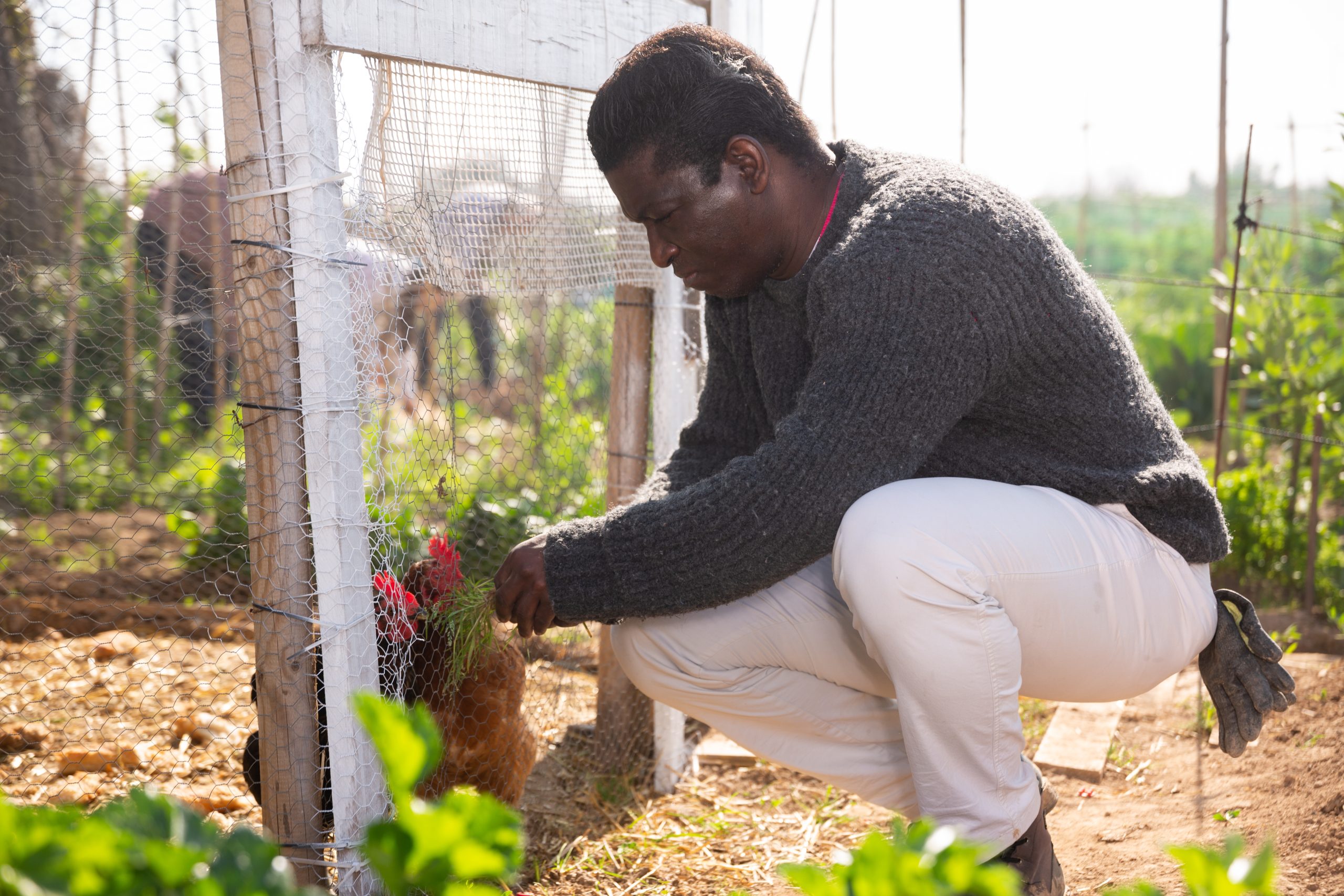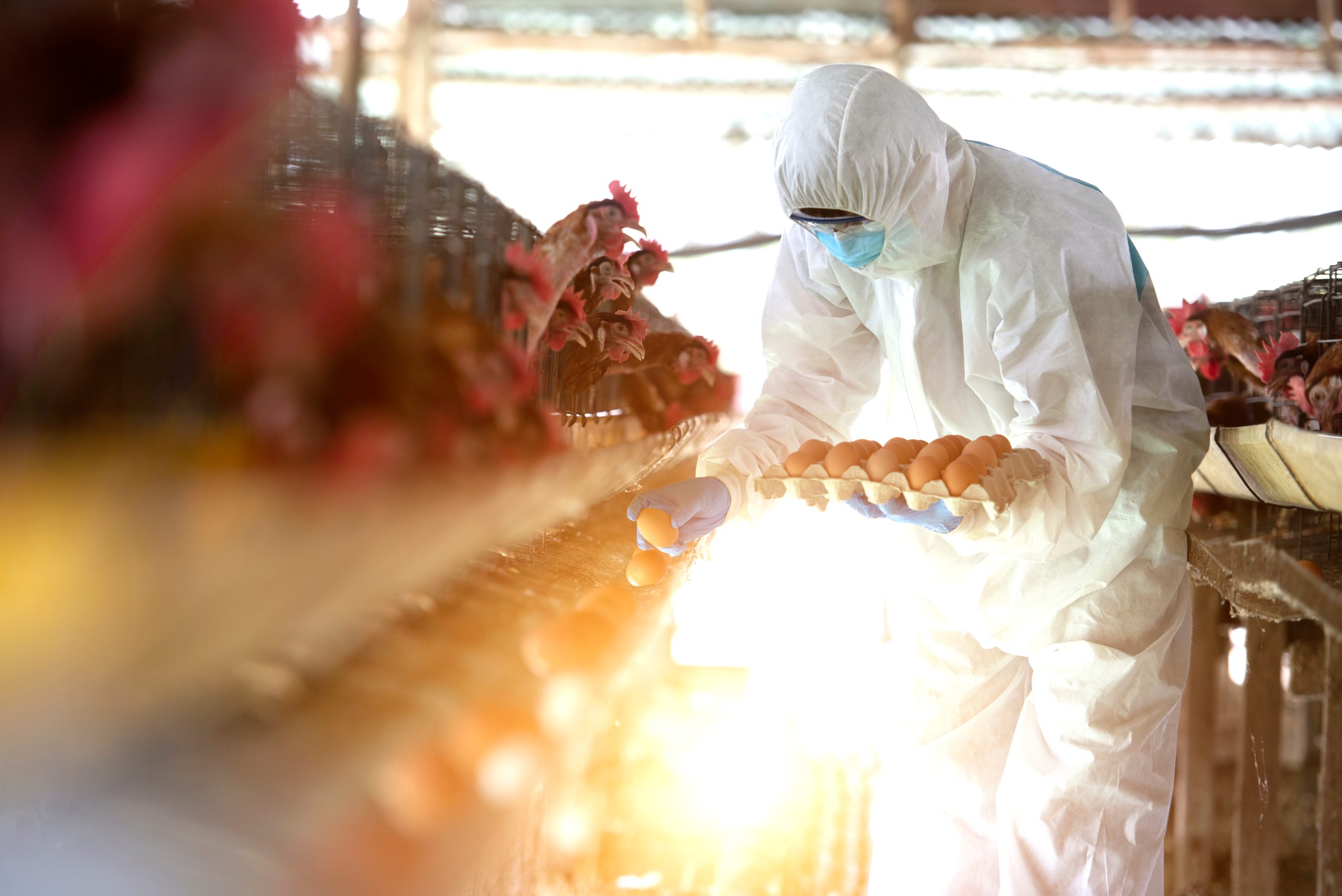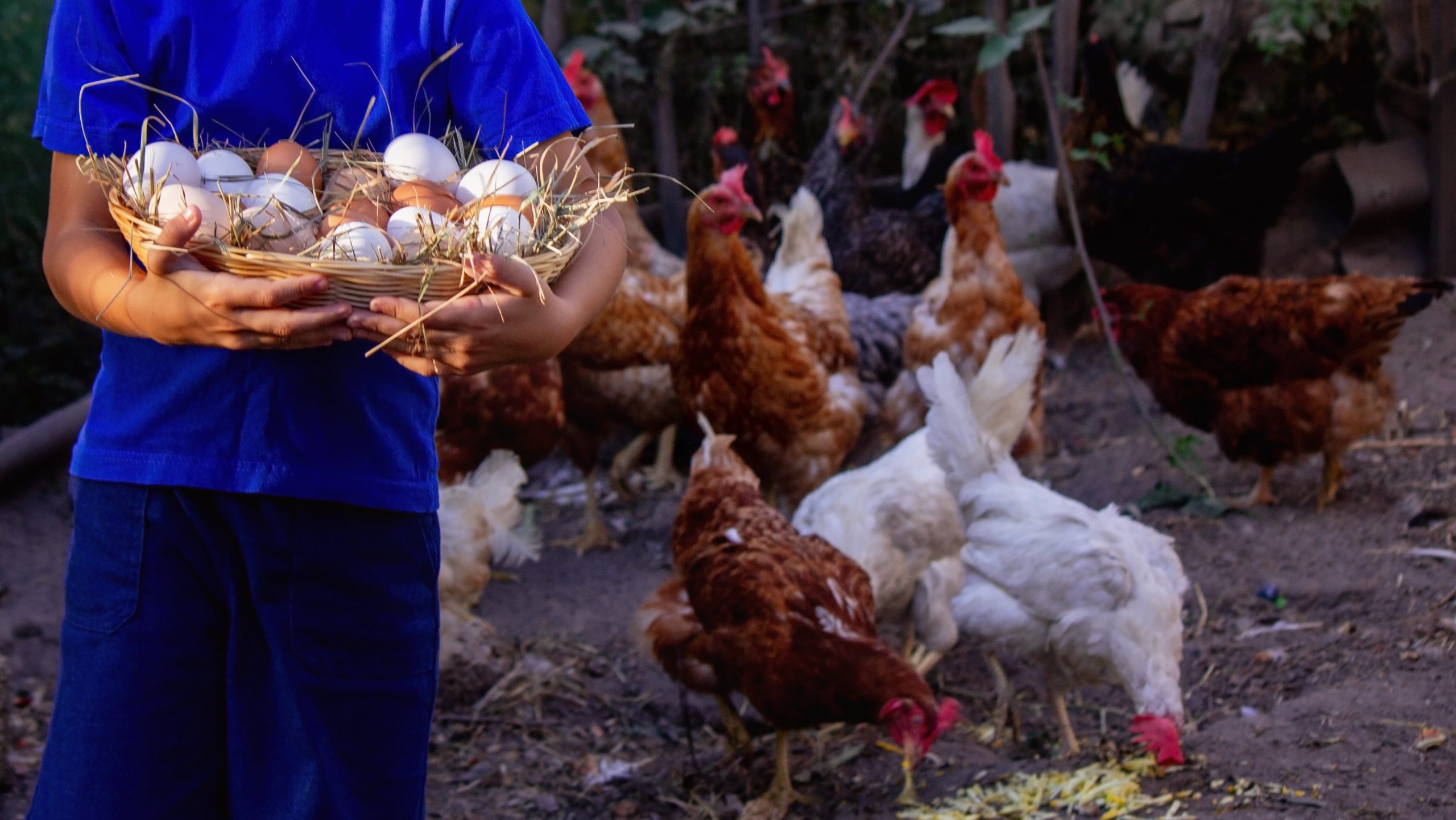Table of Contents
Overview
If you have a poultry farm in Poland and need skilled workers to tend to your chickens, turkeys, geese, ducks, or any other birds you may be raising, look no further than Explorer Dubai Ltd.
 Our Ugandan poultry farm staff is highly trained in all aspects of taking care of the birds, including feeding, housing, and watering them (birds). In addition, they go above and beyond to protect the avian inhabitants from disease and other threats.
Our Ugandan poultry farm staff is highly trained in all aspects of taking care of the birds, including feeding, housing, and watering them (birds). In addition, they go above and beyond to protect the avian inhabitants from disease and other threats.
Since Uganda produces a lot of poultry for domestic and international markets, and since chicken is the most common type, our poultry farm workers are very knowledgeable in this field (hens and cocks). The two most common reasons for keeping chickens are their eggs and meat. Ducks, turkeys, and geese are just a few other birds considered poultry.
Consequently, you need dependable workers proficient at poultry keeping, whether you’re raising birds for commercial purposes or just for your table. It’s because it’s hard to keep domestic birds healthy and safe from predators like cats and dogs and because bad weather can be devastating to chickens in particular.
Chickens and other types of poultry require close supervision. That’s why it’s crucial to hire someone who is an expert in poultry farming rather than just anyone. Our poultry farmers are your best option if you own a poultry farm. Call us whenever you need us!
Who, Then, Works On A Poultry Farm?
Someone who tends to chickens and other birds as part of a living wage occupation is called a poultry Farm Worker. They have a lot of different jobs to do, like giving animals food and shots.
What Else Do The People Who Work At Our Poultry Farm Have To Do?
- In addition to their main job, which is to feed, water, and house the chickens and/or birds, our Ugandan Poultry Farm Workers do the following.
- To make sure the birds (usually chickens and turkeys) perform at their best, their health is checked.
- Workers in the poultry industry keep an eye out for the quality and quantity of lighting in their facilities.
- Chickens and other birds need adequate lighting, especially during their juvenile stages.
- Workers in the poultry industry must also be able to tell when a bird is sick or hurt and separate it from the rest of the flock. As a result, the sick or injured birds are given the right care.
- They know how to fix and take care of tools and machines used in the poultry industry.
- In addition, they maintain clean, well-ventilated, and well-organized henhouses.
- Workers on a poultry farm also keep records of the flock’s well-being, feed consumption, and daily egg yield, among other things.
- They look for signs of illness or injury caused by other birds or the farm’s other animals.
To Be Hired, Workers In A Poultry Farm Must Meet Specific Requirements.
 Workers on chicken farms don’t need a lot of formal training unless they are doing jobs that need the help of experts. One can get hired with just an O-level or A-level certificate. Earning a credential in agriculture, such as a certificate or degree, is desirable.
Workers on chicken farms don’t need a lot of formal training unless they are doing jobs that need the help of experts. One can get hired with just an O-level or A-level certificate. Earning a credential in agriculture, such as a certificate or degree, is desirable.
The reasons why Ugandans are in such high demand across Poland’s Poultry Farms
Well, among other things, the following is why Ugandans who work in poultry farms in Poland are in such high demand:
Expert-Level In Their Field
Workers at our poultry farm are experts in poultry nutrition and care (chickens, turkeys, geese, etc.). They know a lot about birds and can tell which species are attracted to which feeders. Aside from that, they know how much light the birds need at different ages. Lastly, they know how to keep standard farm equipment in good shape and fix it when it breaks.
Capable Of Withstanding Physical Stress
Poland is a top market for Ugandan poultry Farm Workers because they are strong and healthy enough to do a wide range of bird-related tasks. Explorer Dubai Limited requires all prospective chicken Poultry Farm Workers to be healthy.
Self-Driven
Because they are motivated independently, daily reminders of what to do are unnecessary. For example, employees at a Ugandan poultry farm need little in the way of direction. They are in high demand in Poland because of their exceptional poultry-keeping skills.
Open To New Ideas And Tasks
They can handle a variety of roles on the farm and are adaptable when it comes to doing their jobs. The ability to switch between roles is a strength. This means there will be less work piling up on the farm.
Positive Contributors To A Team
They work well with others and are also capable of completing tasks on their own. That’s because they’re naturally gifted communicators. Most chicken farms in Poland are large-scale operations, so it’s important for workers to work well together.
Diligent And On Time For Work Every Day.
They always arrive at work on time and work efficiently to keep the chickens well-fed, watered, and illuminated. Caring for chickens and other poultry indeed takes a lot of energy, but our Poultry Farm Workers are pros at dealing with stress. They keep their cool while working long hours. They, too, are meticulous in their work. They know when specific chickens are due to hatch, which ones are going on sale, and so on.
Talented Talkers
Our Ugandan chicken farm staff are friendly, outgoing, and eager to learn new languages. However, because Arabic is the most common language in Poland, everyone who works at our chicken farm must learn Arabic and any other languages spoken there. This facilitates better interaction between employees and customers.
What You’ll Need To Get A Job On A Poland Poultry Farm.

- Most jobs on a poultry farm don’t require an O-level certificate or its equivalent, but it helps. However, a certificate, diploma, or degree in agriculture will set you apart from the competition.
- You need to be open to learning new skills, including keeping up with the latest innovations in poultry farming.
- Possessing excellent listening and talking skills is essential.
- You should be prepared to work for long periods.
- You should expect to put in extra time, even on days off.
- You need to be polite, engaging, and well-mannered.
- You need to be someone who gets their mojo from contributing to a cohesive unit while completing challenging tasks under pressure.
Interesting Facts About Poland That Ugandan Baristas Love
Tricky Language
Besides Poland, no other country uses Polish as its official language. Poland’s membership in the European Union makes Polish a recognized language in the EU.
Non-native speakers frequently lament the difficulty of learning Polish as a beginner. A different opinion may be held if you are fluent in a related language to Polish, such as Czech. However, most people still need help learning Polish.
Polish is remarkable because it contains several sounds that are absent from the vast majority of other languages. Also, unlike most other Slavic languages, these sounds are written with a modified version of the Latin alphabet.
 Do you know the distinction between sz and rz, for instance? Where do you stand on,, and dz? Unfortunately, Polish orthography is notoriously tricky and only gets more complex as time goes on. Even native speakers have trouble keeping track of all the rules!
Do you know the distinction between sz and rz, for instance? Where do you stand on,, and dz? Unfortunately, Polish orthography is notoriously tricky and only gets more complex as time goes on. Even native speakers have trouble keeping track of all the rules!
John Paul II, The Pope
Poland has been at the centre of Christian Europe for centuries with a Catholic population that is second only to Italy in its devotion to the church.
It’s not hard to picture the world’s reaction in 1978 when a young Polish cardinal named Karol Józef Wojtya was chosen as Pope. He became Pope under the name Jan Pawe II, or Pope John Paul II in English.
By the time he passed away in 2005, aged 84, Pope John Paul II had become one of the longest-serving popes in history, having presided over the Catholic Church for the better part of the second half of the twentieth century.
The former Pope is widely celebrated in modern-day Poland. Statues, stamps, coins, and other memorabilia bearing his likeness are displayed.
He is still looked up to as a model by the Polish people and is regarded as a national hero.
Legends, Folklore, And Myths
The worldwide popularity of The Witcher books, games, and television shows has helped bring Polish mythology to a wider audience.
However, traditional Polish folklore has much more to offer than scary monster tales.
Since the Middle Ages, Polish culture has been defined by the rapid and strong adoption of Catholic doctrine. At the same time, Polish people maintained many of the paganism-inspired Slavic myths, tales, and beliefs of their ancestors.
One such story is that of Twardowski, a fellow who makes a deal with the devil in exchange for magical powers and then uses his wits to keep them and avoid damnation.
Certainly, many Christian symbols can be found here. What with all the blatant parallels to Faust and all!
However, ancient Pagan beliefs significantly influence the story’s portrayal of the devil and other supernatural forces.
This is why Polish mythology, especially when told to an audience from the West, can seem exotic and familiar.
Bolesawiec Porcelain, A Work Of Art
Poland is known internationally for a specific type of hand-made pottery that you may still need to become familiar with.
Bolesawiec, Poland, is known worldwide for its exquisite ceramics. Bolesawiec, located in Poland’s beautiful Lower Silesia region near the German border, has been a significant hub for traditional Polish ceramics for centuries.
If you’ve ever been to Poland, you know why Bolesawiec is so popular: the city has almost a monopoly on a type of traditional Polish art with whimsical, abstract patterns and excellent craftsmanship.
Because each item is one-of-a-kind and flawed in its own way, they are also rare.
Polish cities and tourist destinations all have public markets where you can buy pottery in the Bolesawiec style. But if you want a genuine article, you should go to Bolesawiec. Also, don’t forget to check out the local ceramics festival, held for nearly a full week every August.
It helps that the city is charming, with a lovely historic district where you can spend your time.
Pierogi
If we talk about Polish customs, we must include pierogi, right? So do yourself a favour and put down this book if you’ve never tried them.
Although these bite-sized treats are well-known across the globe, few people recognize them as part of Poland’s diverse and delicious culinary heritage.
This is most likely because Russian pierogi (pierogi ruskie in Polish) is the most popular variety. The most Polish thing you can think of is called a “pirog,” but in Russia, they eat something entirely different, and pierogi ruskies are the most Polish thing you can think of.
Kiełbasa
People worldwide know Poland for its pierogi, but in Poland, kiebasa is seen as the best snack. Any kind of meat could be used to make this ready-to-eat sausage.
U-shaped and quite substantial, kiebasy is a traditional Polish dish. Although whole ones are occasionally consumed, this is not the norm outside of a multi-course meal. So instead, divide it up into bite-sized pieces and pass them around the table.
Candy Bars Made Of Milk
Of course, you can’t get the best pierogi in the world at a grocery store; for the real deal, you must find a real Polish restaurant. Authentic milk bars are the best option for this.
Bary mleczne, or milk bars, are a type of eatery popular in Communist Poland. You can order simple meals by combining a few items from the daily menu, as in a canteen.
Traditional Polish dishes like gobki, stuffed with rice, meat, and vegetables and rolled in boiled cabbage, a staple at milk bars. The meals are known for having a lot of flavour for how cheap they are because they are made with tried-and-true methods and high-quality ingredients.
In addition, you won’t believe how cheap the food at a milk bar is.
A meal for two should be a maximum of a few dollars. This is why Poland is a rarity among European countries in that it is sometimes cheaper to eat out than to buy food at a grocery store.
That’s the definition of a win-win situation if I’ve ever heard one!
Bison
Currently, the eastern forests of Poland are home to the largest bison population in all of Europe except Belarus.
Please remember that I am referring to European bison, which is not to be confused with the more common American bison. Bison were nearly hunted to extinction in eastern Poland for their fur and meat, but a small population has since recovered there.
Many tourists visit Poland specifically to see these magnificent animals in their natural habitat. There’s a good reason why the bison is also Poland’s national animal.
This Forest Is The Oldest In Europe.
The Biaowiea Forest, on the Polish side of the border with Belarus, is home to most of Poland’s incredible animal population. The forest covers hundreds of square kilometres.

Biaowiea is one of the few original forests that still exist in Europe. Its ecological depths hold a microcosm of the prehistoric continent of Europe. It’s also the biggest of its kind.
Biaowiea is legally safeguarded because of its special status. As a result, the forest has been left largely undisturbed by human activity, allowing it to retain its natural beauty.
Solidarność
Photo by Robson90/SShutterstock.com (editorial use only)
The word “solidarity” should be familiar to anyone old enough to recall the fall of the Iron Curtain. In its native Poland, Solidarno was a labour union that grew into a national civil rights movement.
People often say Solidarity helped eliminate Poland’s communist government by leading protests across the country and taking direct action. They indirectly contributed to the fall of the Eastern Bloc.
Solidarno co-founder and longtime leader Lech Wasa became the first democratically elected president of Poland after the country transitioned from communism in the 1990s.
Despite his retirement from politics, he is still a well-known figure in the country.
Gdańsk
The metropolitan area that includes the city of Gdask is the largest in northern Poland. It’s part of a tri-city region with Gdynia and Sopot.
Due to their strategic location on the coast of the Baltic Sea, these three cities have long served as a hub for European commerce.
Gdask, then known as Danzig, joined the Hanseatic League in the Middle Ages. However, the town’s cross-cultural interaction during this time continues to shape its identity.
Gdask is one of those places you can’t miss because of the remarkable synthesis of German and Polish traditions that can be seen in the city’s architecture, history, and landscape.
Kashubian
You might be surprised to learn that most Poles speak not only Polish. Poland’s neighbours speak Ukrainian, Belarusian, and Czech, but the country also has a number of minority languages that are spoken all over the country.
Kashubian is the most well-known of these varieties, and it is still spoken today in the country’s northern region, particularly in the Gdask region. Kashubian is spoken by a small but distinct ethnic group indigenous to this area; its speakers speak a language that is related to Polish.
Kashubian used to be thought of as just an old dialect because it is easy for Polish speakers to learn. Kashubians and their language were not officially separated from Polish until quite recently.
Sea Of The Baltic
Poland’s Baltic coast is renowned for its exceptional weather and stunning beaches and cliffs. There are national parks set aside to preserve some of these.
Even in the warmer months, I recommend going for a swim if you enjoy the cold and are used to it. However, the breathtaking scenery more than makes up for any shortcomings.
It’s not just the coastal areas of the mainland. Some of the finest spas and resorts in all of Europe can be found on the many Polish islands that dot the Baltic.
The Bdów Sand Dunes
Despite the common misconception that Poland is a snowy, treeless wasteland, the country has a lot more to offer than meets the eye. Of course, Poland has beautiful Baltic seascapes and lush islands, but did you know that Poland also has a desert?
I’m going, to be honest here. Because it lacks a distinctive microclimate and ecosystem, Bdów cannot be properly classified as a desert. In southern Poland, far from the coast, there is a vast expanse of sand covering a few dozen square kilometres.
The retreating glacier at the end of the last ice age created this extraordinary region of Central Europe.
Manners In Poland
As I’ve already said, Poland’s culture developed uniquely because both Catholic ideas and old Slavic traditions influenced it. In addition, eastern and Western perspectives add depth to the overall picture.
However, the stark distinctions between Polish society’s norms and those of the rest of Europe frequently surprise visitors from other nations.
In Poland, for instance, it is not uncommon for men to make a few mildly chivalrous moves toward women upon first meeting them.
In greeting, many men still kiss the hand of a woman.
Poles are fond of greeting one another with “dzie dobry” (good day) in public spaces like elevators, stairwells, and office hallways. After that, you can count on a firm handshake and plenty of eye contact if there is any further conversation.

In addition, remember that it’s impolite to refuse an elderly or pregnant woman a seat on public transportation.
You can count on being called out when you do something wrong, and I mean that literally. When speaking in public, Poles don’t hold back and say exactly what’s on their minds.
Those Looks
If you ever find yourself in Poland and notice everyone staring intently into your eyes while you’re out and about, that’s perfectly normal. Nothing is wrong, and this isn’t one of those dreams where you wake up naked.
This is another example of the distinctive Polish style. Polish people tend to stare a little bit when you pass them on the street, introduce yourself, or interact with them, no matter how brief.
It is not a sign of anger, annoyance, or any other negative emotion. However, the Polish custom of making eye contact can be a bit strange for visitors.
Vodka
Noemi Apostol, Shutterstock.com, for use in editorial purposes.
Some people can’t stand it, but it’s common knowledge that many Poles consume it neat. But, of course, I am referring to the local favourite, vodka, or orwódka.
Polish vodka is some of the best in the world, and while many people believe it was invented in Russia, there is ample historical evidence to suggest that the honour should go to Poland instead.
If you consider yourself a drink expert, you would be doing yourself a great disservice by not giving it a shot at least once. This Polish memento can also serve as a thoughtful present for friends and family.
Toruskie Pierniki
There may be a trend developing. Polish cuisine is among the best in the world. That includes desserts, by the way! Wonderfully spiced and sweetened with honey, gingerbread cookies called pierniki are a Polish speciality.
While gingerbread cookies and cakes are typically associated with the holiday season, Pierniki can be enjoyed any time of the year in Russia. If you ask me, that’s a good thing.
Films From Poland
Poland has made important contributions to cinema in Europe and beyond for over a hundred years. Krzysztof Kielowski, Roman Polanski, and Andrzej Wajda are some great Polish directors who have gained international renown.
Walerian Borowczyk, an “artist-pornographer,” is one of the more divisive figures in Polish cinema.
Poland has secured its place in the history of world cinema with a body of work that includes both commercial successes and groundbreaking experimental works.
Kraków
Kraków, the country’s former capital and one of the most visited places in Poland, is a major attraction for many tourists. You can see why; the buildings in the city’s historic core span centuries of design, from the early Middle Ages to neoclassicism in the 19th.
Kraków is also connected to numerous significant events in Polish history and folklore. There’s an old tale about a gigantic dragon that supposedly resided in this area back in the 1300s. Wawel Castle, once home to Poland’s monarchs, is still a popular tourist destination today.
There were also some of Poland’s darkest moments here. Kraków was the location of a significant ghetto during WWII, and Oskar Schindler’s factory was located on the city’s outskirts.
The Polish concentration camp of Auschwitz-Birkenau
The solemn reminder of one of Europe’s darkest chapters is about an hour away—the Auschwitz concentration camp. It’s not hard to get to Kraków, but you should check your stomach before you go.
Wrocław
Wrocaw is one of Poland’s major cities, despite receiving less attention from foreigners than Kraków and Warsaw. As the capital of the prosperous Lower Silesia region, Wrocaw is often cited as the most desirable place to settle in all of Poland.
Wrocaw, formerly known as Breslau, was the capital of German-occupied Poland until 1945. Wrocaw is one of Poland’s most prosperous cities because of its rapid growth since the war’s end.
If you ever find yourself in Wrocaw, beware the local dwarf population. Dwarf statuettes and miniature figurines can be found all over the city, especially in and around the central area. Dwarfs are constantly being added, and the search for them has become a sport for some. But, can you count them all?
Warsaw
Warsaw is the Polish capital and the most famous Polish city abroad. Warsaw, Poland’s capital and largest city, and the site of some of the bloodiest fighting of World War II, has received its fair share of media attention.
By 1945, Warsaw, unlike other Polish cities, was largely in ruins. Even after the war ended, life in Warsaw was notoriously difficult compared to the rest of Poland due to the Russian occupation.
Warsaw has undergone an almost unbelievable transformation in recent years. The city is more vibrant now than ever before, both economically and culturally. Warsaw hosts several important festivals throughout the year, including a jazz festival and a film festival that are known all over the world. In addition, it has some of the best restaurants in Poland and a stunning historic district.
Amber
Polish amber is one of the country’s oldest and most successful exports. Amber jewellery, first created in ancient Poland, quickly gained popularity across Europe.
Amber products and souvenirs first became popular in the Gdask area and other Baltic coast cities, but now you can find them all over Poland.
Bloki
After WWII ended, Poland pioneered a new type of low-cost, prefabricated communal apartment housing. These mass-produced apartments, or “bloki” as the locals lovingly refer to them, became a huge hit, much like their Soviet Union counterparts.

People left their bloki in droves around the turn of the millennium for a taste of urban “Western” life, but sentimentality has recently drawn many back. As a result, many bloki have been updated and repainted in bright colours and patterns over the past decade due to this trend.
Blokis have a more communal feel than standard apartments thanks to their socialist roots. A council of tenants runs the whole block, which usually has a community garden and public services like kiosks, schools, and kindergartens that everyone uses.
Bloki tends to congregate in groups that can encompass entire blocks. These are called blokowiska in Polish.
Stunning Mountain Scenery
The varied topography of Poland is one of the country’s most striking features. This is fantastic news for hikers.
Poland’s varied landscapes include the Sudety Mountains in the country’s southwestern corner, the internationally renowned Tatra Mountains, and the Bieszczady Mountains in its southeastern corner (also home to their own national park).
Why Should You Hire Explorer Dubai Ltd for Poultry Farm Workers in Poland?
At Explorer Dubai Ltd, we pride ourselves on understanding our client’s concerns. We go above and beyond to ensure their safety and well-being. Here’s why we are always a step ahead of other Ugandan recruitment agencies for Poultry Farm Worker in Poland:

- We have a proven long and successful history of providing qualified and experienced Poultry Farm Worker to Poland.
- We offer a hassle-free and cost-effective service.
- We are also dedicated to finding the best match between the candidate and the employer.
- We have a proven track record of successful placements.
- We offer a personal and professional service.
- We provide the best quality service.
- We offer the most competitive rates.
- We have a good reputation.
Why Should You Hire Explorer Dubai Ltd. for Poultry Farm Workers in Poland?
At Explorer Dubai Ltd we pride ourselves on understanding our client’s concerns. We go above and beyond to ensure their safety and well-being. Here’s why we are always a step ahead of other Uganda recruitment agencies for Poultry Farm Worker for Poland facilities:

- We have a long and successful experience in providing qualified and experienced Poultry Farm Worker to Poland homes and offices.
- We offer a hassle-free and cost-effective service.
- We are dedicated to finding the best match between the Poultry Farm Worker and the job at hand.
- We have a proven track record of successful placements.
- We offer a personal and professional service.
- We provide the best quality service.
- We offer the most competitive rates.
- We have a good reputation.
How Does Our Three-Step Recruitment Process Work?
The three easy processes that Poland employers take to hire Ugandan labour here at our company are:
- The First Step
- The Second Step
- The Final Step
Make an appointment right away for your free consultation! Or
Don’t hesitate to get in touch with us today or
WhatsApp or simply
Book Online
- Remember to give us your demand specifics, including:
- The necessary number of staff members
- The date by which you require them
- The country of the worker’s final destination.
- The workers’ salary range.
- The age, experience and academic requirements
- Basic medical tests to be done
We guarantee an immediate response, and if that’s not feasible, one within the next twelve hours.
We will provide you with twice as many resumes as the minimum required for selection.
We will schedule candidates interview in accordance with your preference, which will consist of either:
A physical interview. During this, we will assist in the organization of your accommodation and interview location; Or
An interview conducted through Skype
We are going to get the appropriate clearances from the government.
You will receive the Ugandan workers right at the Airport of your choice!
Our Guarantee
At Explorer Dubai Ltd we’re confident that you’ll appreciate our Poultry Farm Worker professionals. We also offer a 3-month performance guarantee and will replace any Poultry Farm Worker that doesn’t meet your expectations for free. Our Poultry Farm Workers are professionals that have become a necessity for our clients over the years overseas.
How Much Does It Cost?
We keep our recruitment ethical and completely free.
Nevertheless, we are quite familiar with the international migrant labour market because the criteria for workers in each country vary. We understand that each country’s labour requirements differ, and we are happy to discuss your specific needs in a one-on-one conversation.
Our goal is to provide superior services at an affordable price. We take great pride in providing services that are both low-cost and of the highest possible quality.
Get In Touch with Us
Regarding Poultry Farm Worker professionals in Poland works, there are many factors to consider. But you can’t go wrong with Ugandan Poultry Farm Worker if you’re looking for a reliable, efficient, cost-effective Poultry Farm Worker. Their years of experience know how to handle any situation and always have your best interests at heart. So, consider a Poultry Farm Worker for your work if you need a professional Poultry Farm Worker.
Our Recruitment Top Secret
“Now, let me reveal this brand-new secret that everyone else is talking about! Finding reliable Poultry Farm workers who can be relied on is a stressful process. We are at your service because we know that hiring a reliable Poultry Farm Worker will allow you to focus on important activities. Hire a Ugandan Poultry Farm Worker for your work or home care today! We have a very fast deployment pace!
Make an appointment right away for your free consultation! Or
Please contact us today or
WhatsApp right now? or
Book Online Tonight!






